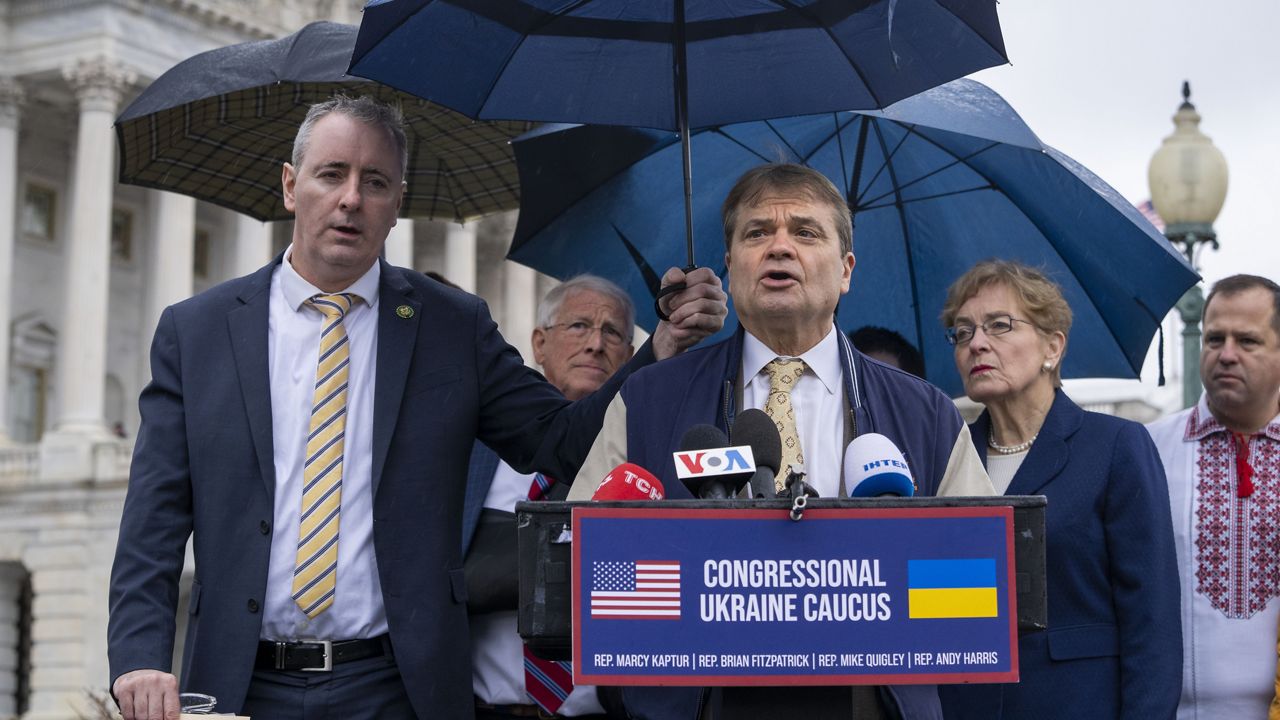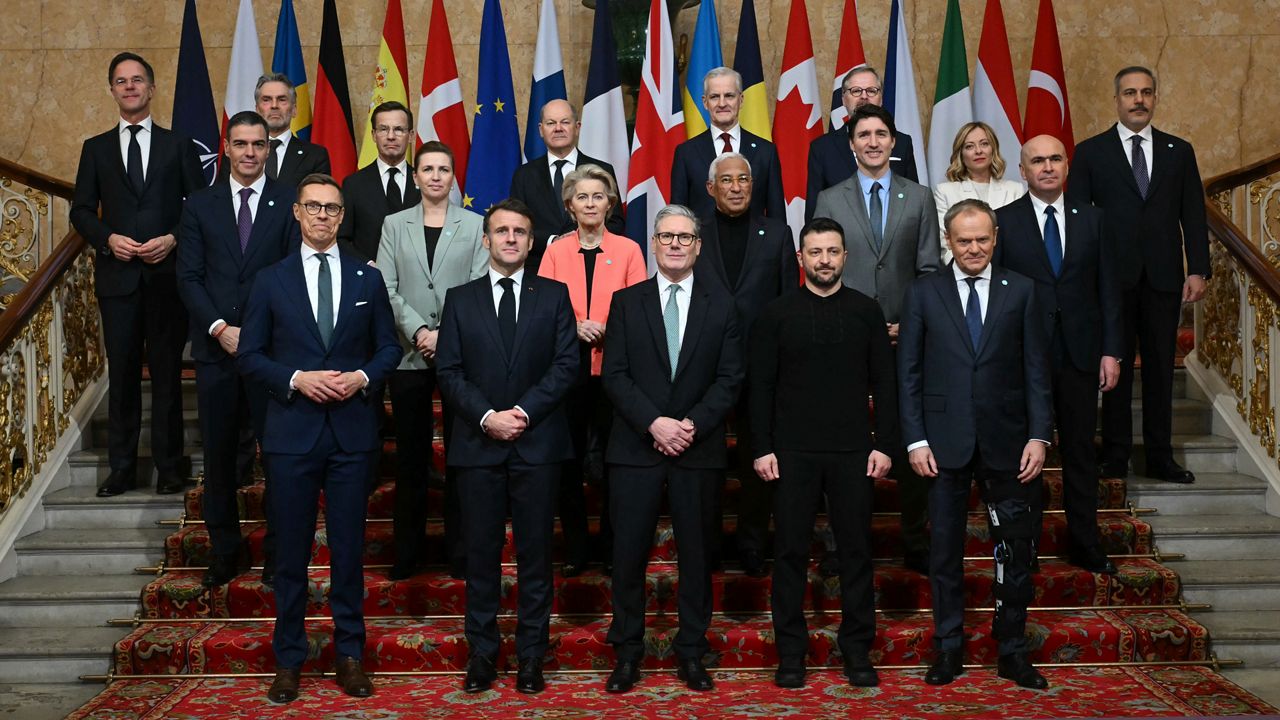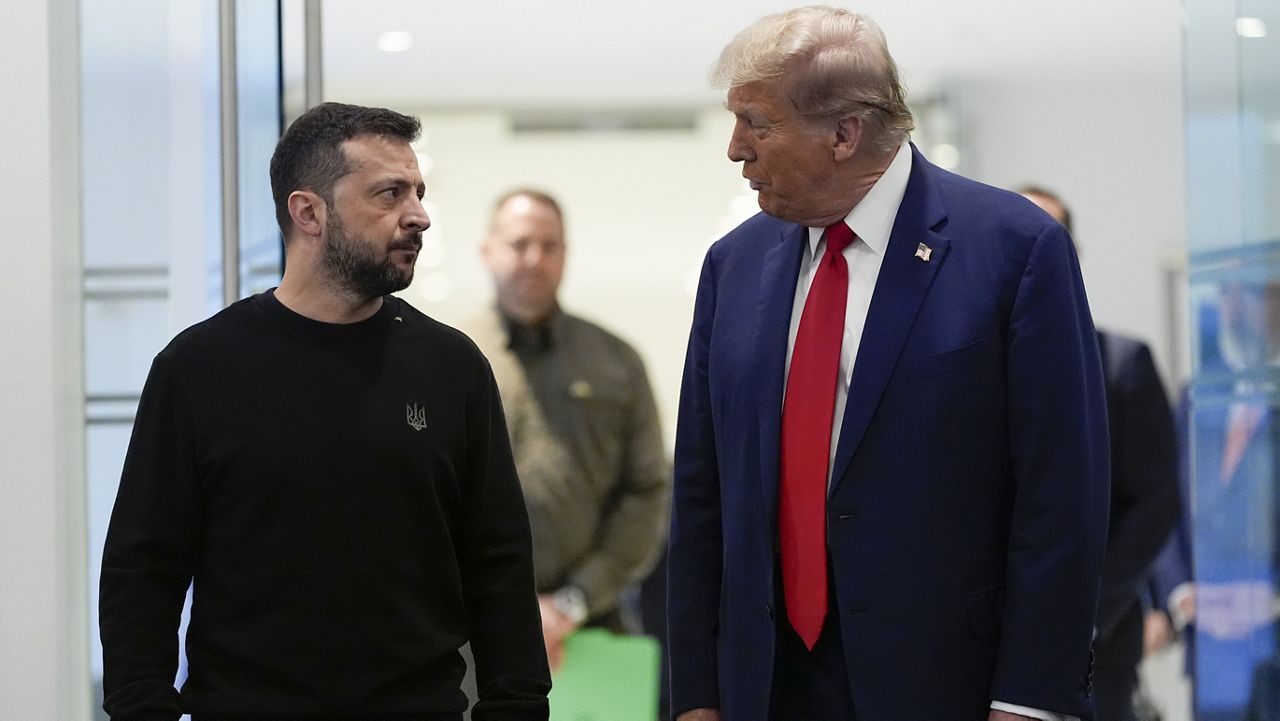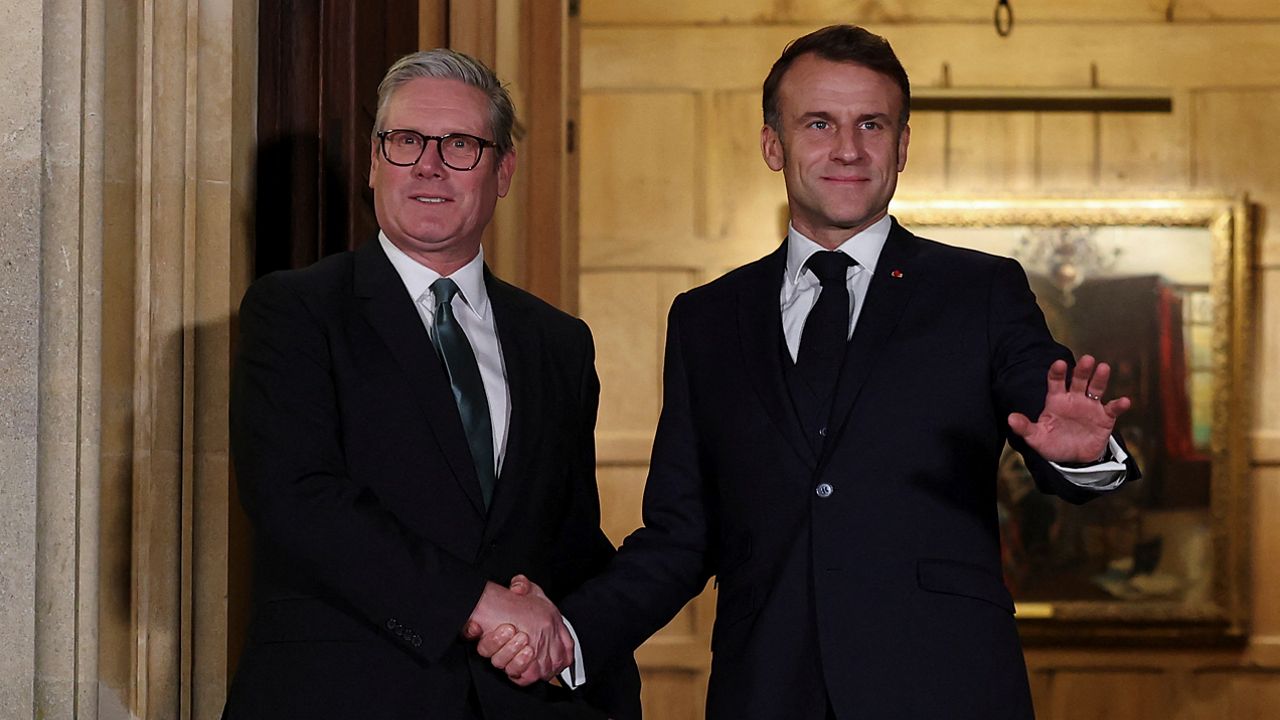Pennsylvania Rep. Brian Fitzpatrick, a House Republican lawmaker in favor of Ukraine aid, told reporters on Thursday he was preparing an effort to circumvent House Speaker Mike Johnson and force a vote on aid to Ukraine.
The Senate earlier this month passed a $95 billion bill to provide funding to Ukraine, as well as Israel and Taiwan, but the measure has stalled in the Republican-led House amid opposition from Johnson and the GOP.
The procedural motion, known as a discharge petition, allows a vote on any legislation, regardless of the input of House leadership, if it gets 218 signatures, representing a majority of the chamber. After New York Rep. Tom Suozzi was sworn in on Wednesday night, Democrats have 213 members in the House, meaning Fitzpatrick would need the support of four of his fellow Republicans to put it over the top.
Discharge petitions take time to execute, delaying the process of getting aid to Ukraine even further, but the possibility of such a move could force the hand of House leadership.
“We have to get something done,” Fitzpatrick, who co-chairs the bipartisan Problem Solvers Caucus and the Congressional Ukraine Caucus, told reporters on Thursday.
Pressure has ramped up on House Republicans to move more aid to Ukraine. A group called Republicans for Ukraine recently launched an ad campaign in key districts held by pro-Ukraine GOP members urging them to pass additional military aid to the country. And in a White House meeting earlier this week, leaders in both the House and Senate, as well as President Joe Biden and Vice President Kamala Harris, pleaded with Johnson to put the Senate-passed aid bill on the floor for a vote.
Fitzpatrick was part of a handful of bipartisan lawmakers who earlier this month introduced a more narrow bipartisan aid bill that would provide $66 billion in military aid to Israel, Ukraine and Taiwan while also implementing some border security provisions sought by House Republicans, including reviving the “Remain in Mexico” asylum policy for one year. The border provisions, combined with the lack of humanitarian aid in the measure, could be a tough pill to swallow for some progressives.
It’s not clear whether that bill or the Senate’s bill will be put forward via the discharge petition. Fitzpatrick told reporters that the way that they wrote the discharge petition gave them the ability to substitute legislation.
“We'll take our feedback and get it right,” he said.
When asked what his message is to Republicans who do not support additional aid to Ukraine, Fitzpatrick said they “should go there and see what’s going on.”
Russian President Vladimir Putin, Fitzpatrick said, “isn’t stopping with Ukraine,” adding: “if we don't nip this problem in the bud now it's going to become much more costly in terms of dollars and lives.”
California Rep. Pete Aguilar, the chairman of the House Democratic Caucus, called the discharge petition effort “well-meaning” but said it’s “it’s not where the focus should be.”
“The solution is incredibly clear: It is the bipartisan solution that has 70 votes out of the United States Senate,” he said Thursday.
House Minority Leader Hakeem Jeffries told reporters Thursday that "it's time for my Republican colleagues to stop playing games and engaging in political stunds with respect to the national security prioriteis of the American people, which include making sure that we stand with Ukraine and not Vladimir Putin."
The bipartisan national security bill, he said, is the "most reasonable approach" for foreign assistance to Ukraine.
"All legislative options remain on the table. But the clearest path toward making sure we support the Ukrainians who have bravely fought against Russian aggression and not allow Russia to succeed — which will only result in dragging the American people into a potential conflict with NATO that will involve American service women and men on the ground — the only way to ensure that that doesn't happen is to make sure we provide immediate assistance to the Ukrainian people," Jeffries said.








